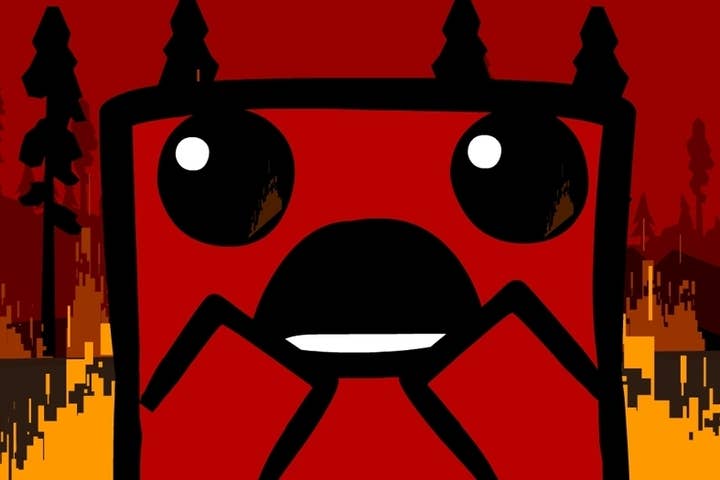Meat Boy dev: DRM hurts more than piracy
Tommy Refenes bemoans misplaced priorities in light of SimCity launch woes
The troubled launch of EA's SimCity due to its always-online requirement has raised the issue of digital rights management and the effectiveness of anti-piracy measures once again. In a post on his own blog, Super Meat Boy developer Tommy Refenes gave his own take on the subject, arguing that developers' attempts to keep their games from being pirated are hurting themselves first and foremost.
"As a forward thinking developer who exists in the present, I realize and accept that a pirated copy of a digital game does not equate to money being taken out of my pocket," Refenes said. "Team Meat shows no loss in our year-end totals due to piracy and neither should any other developer."
Since any developer who sells games online has a functionally infinite supply of copies, it's impossible to calculate a loss due to theft based on anything but speculation.
"Companies try to combat piracy of their software with DRM but if loss due to pirated software is not calculable to an accurate amount does the implementation of DRM provide a return on investment? It is impossible to say yes to this statement," Refenes said.
"Everyone needs to accept that piracy cannot be stopped and loss prevention is not a concept that can be applied to the digital world."
Tommy Refenes
On the other hand, use of DRM does have more tangible and quantifiable effects. For one, Refenes said he received a refund for SimCity from Origin after running into the game's launch issues. Because EA had that money only to have to hand it back a few days later, Refenes said that loss is entirely quantifiable, and is "much more dangerous than someone stealing your game."
"In the retail world, you could potentially put a return back on the shelf, you could find another customer that wants it, sell it to them and there would be virtually no loss," Refenes said. "In the digital world, because there is no set amount of goods, you gain nothing back (one plus infinity is still infinity). It's only a negative experience. A negative frustrating experience for a customer should be considered more damaging than a torrent of your game."
Refenes said he has first-hand knowledge of that, and cites the Mac version of Super Meat Boy as an example. Refenes said the port was of poor quality, "a broken product that is out in the public," and acknowledged that the game disappointed customers and resulted in a number of refunds. That disappointment is far more damaging to Team Meat's business, Refenes worried, as he doubts many Mac owners will be interested in giving his next game, Mew-genics, a second look when it launches on the platform.
"The reality is the fight against piracy equates to spending time and money combating a loss that cannot be quantified," Refenes concluded. "Everyone needs to accept that piracy cannot be stopped and loss prevention is not a concept that can be applied to the digital world. Developers should focus on their paying customers and stop wasting time and money on non-paying customers. Respect your customers and they may in turn respect your efforts enough to purchase your game instead of pirating it."

